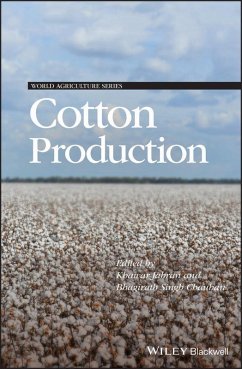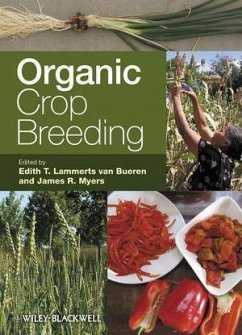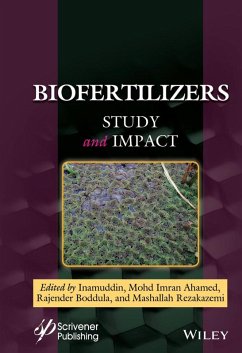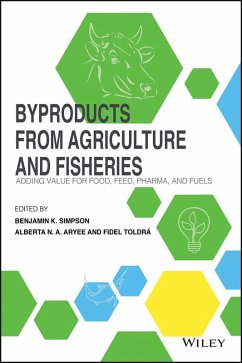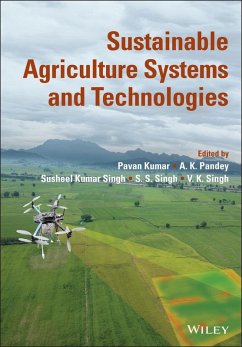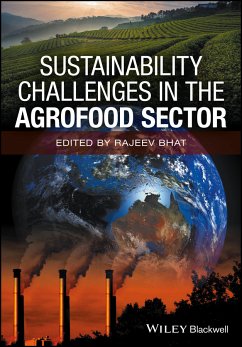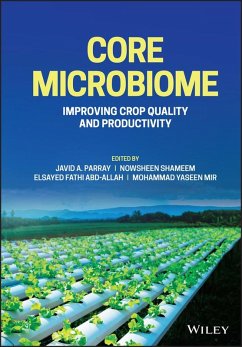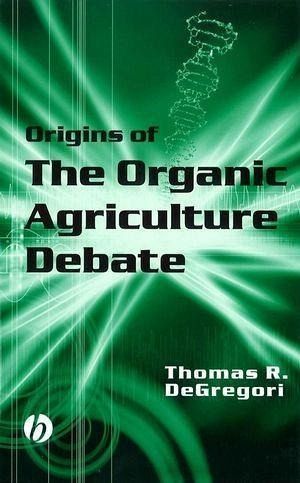
Origins of the Organic Agriculture Debate (eBook, PDF)

PAYBACK Punkte
0 °P sammeln!
Origins of the Organic Agriculture Debate takes anhistorical look at two contrasting streams of ideas. The first viewcomprises the flow of ideas in chemistry and biology that havecreated the conditions for modern medicine, modern food productionand the biotechnological revolution. The second view is the"vitalist" reaction to the rise of modern science and the resultingrejection of modern agriculture. Contemporary proponents of "organic" agriculture and theanti-genetically modified food movement believe that "pure" foodconfers some special kind of virtue both on those who produce itand those wh...
Origins of the Organic Agriculture Debate takes anhistorical look at two contrasting streams of ideas. The first viewcomprises the flow of ideas in chemistry and biology that havecreated the conditions for modern medicine, modern food productionand the biotechnological revolution. The second view is the"vitalist" reaction to the rise of modern science and the resultingrejection of modern agriculture. Contemporary proponents of "organic" agriculture and theanti-genetically modified food movement believe that "pure" foodconfers some special kind of virtue both on those who produce itand those who consume it. They fail to acknowledge that organicchemistry, genetics, and molecular biology have been as essentialto twentieth century advances in agriculture such as plantbreeding, and are instrumental to ensuring that there is enoughfood for everyone. Origins of the Organic Agriculture Debate * * Begins with an exploration of the factors involved in ourmodern fear of technology, a fear which forms the foundation foranti-technology beliefs and practices. * Argues that vitalism is at the core of an array of contemporaryanti-science and anti-technology movements. * Helps readers fully understand the ferocity with which certainbeliefs about homeopathic medicine and the "organic" are heldagainst all evidence to the contrary. * Explains the history of nitrogen in life and in agriculture,countering myths of scarce resources and beliefs about thesufficiency of organic nitrogen to feed the world'spopulation. * Purports that technology creates resources, debunking the ideathat resources are natural, fixed and finite. * Updates and clarifies issues discussed in the author's previousworks: A Theory of Technology (1985), Agriculture andModern Technology (2001) and The Environment, Our NaturalResources and Modern Technology (2002). We need to better understand the forces of scientific andtechnological change if we are to control the negative elements ofthese forces, continue to advance the development of science andtechnology, and facilitate fuller participation in the benefits ofour advancing capability to further the human endeavor. Originsof the Organic Agriculture Debate will provide a basis for thisunderstanding.
Dieser Download kann aus rechtlichen Gründen nur mit Rechnungsadresse in A, B, BG, CY, CZ, D, DK, EW, E, FIN, F, GR, HR, H, IRL, I, LT, L, LR, M, NL, PL, P, R, S, SLO, SK ausgeliefert werden.



